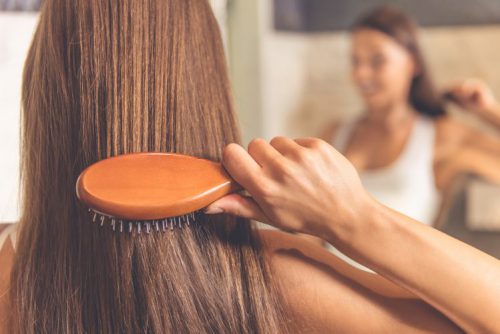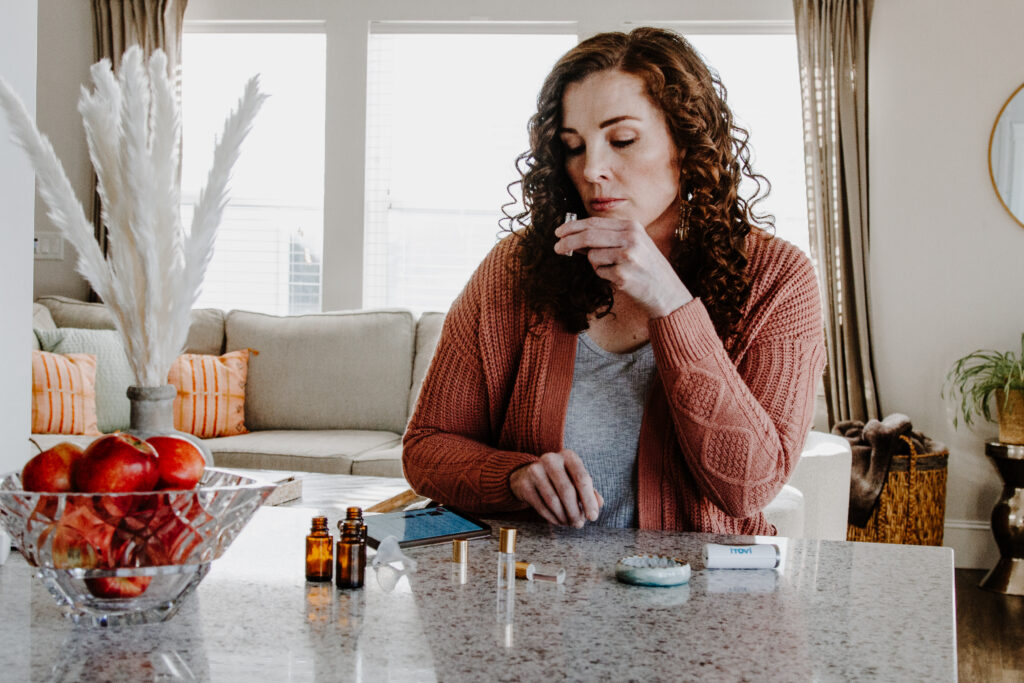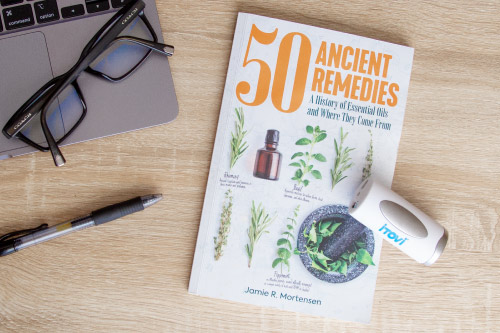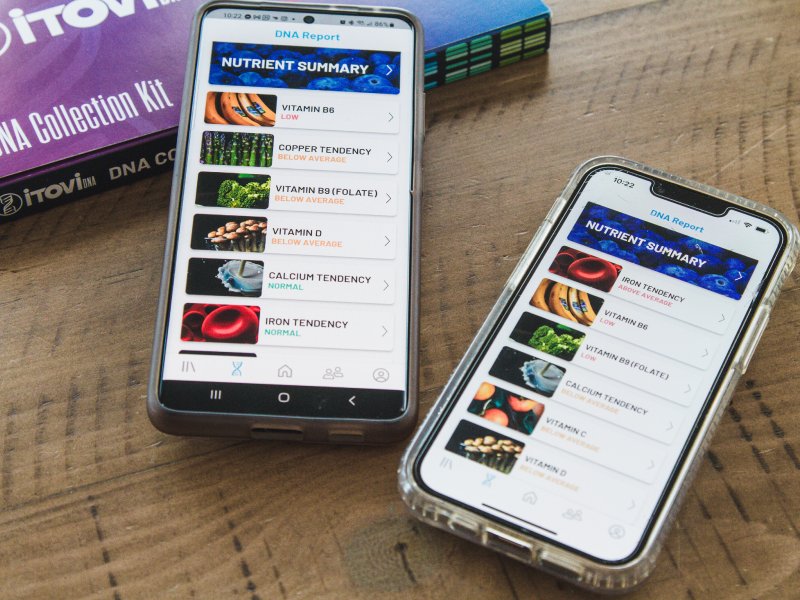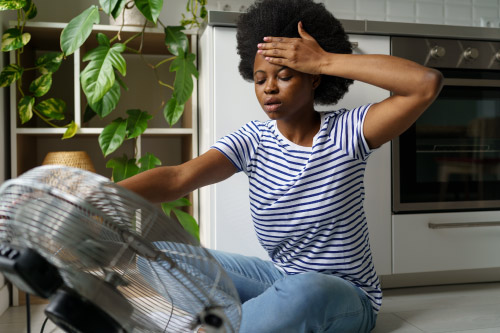
Is it just me…or is it getting really hot in here? Hot flash!
A hot flash feels like someone just cranked up the thermostat but on the inside. There you are casually going about your day, and all of a sudden there is heat seeping through your body and across your skin!
And the heat can stay for a while! Most hot flashes only last a few seconds but some can last as long as ten minutes!
This can lead to quite a bit of discomfort! During hot flashes, we often find ourselves flushing, sweating, fanning ourselves, and removing excessive layers of clothing to cool down! And when hot flashes come at night, you can experience “night sweats” that interfere with your ability to sleep!
Hot flashes are common too! Roughly 75% of all women struggle with hot flashes at some point in their lives and they are not uncommon among men either!
The world wants, and deserves, to have methods to help prevent and/or effectively respond to hot flashes. And they do exist! We’re here to break it all down for you—why hot flashes happen, how they can be prevented, how they can be best responded to, and, of course, how your iTOVi Scanner, essential oils, and supplements can help!
Why do hot flashes happen?
It typically starts with your hormones. Normally, your hormones are helpful little biological messengers that scurry all through your body, signaling to your cells what they need to be doing and working with your various endocrine glands to stay balanced with each other.
However, when the hormones in your body fall out of balance, that can signal the “master gland” of your endocrine system, the hypothalamus, to become more sensitive to changes in your body temperature! And this can cause your hypothalamus to overreact to the presence of heat in your body and trigger a hot flash as a way to try to expel that heat from your body.
So, how do your hormones fall out of balance in the first place?
The most common culprit is the onset of menopause. The levels of estrogen in a woman’s body naturally begin to drop around menopause age.
But your hormones can also be tipped out of balance by certain medications, allergies, stress, nutrient deficiencies, cancer treatments, hormone conditions (like an overactive thyroid), hot sleeping conditions, and more!
How do I prevent hot flashes?
It’s pretty simple—take care of your endocrine system. The endocrine system is the system of glands and cell receptors in your body responsible for managing the production and balance of hormones in your body.
Some endocrine-disrupting, hot-flash-causing conditions (thyroid issues, ovarian or prostate cancers, etc) will require professional medical attention. However, more-common, less-serious hot-flash causes (like simple aging, stress, nutrient deficiencies, environmental issues, weight factors, etc) can be combated with the following methods:
Eat Right
Your endocrine system needs fuel to stay balanced! To remain the healthy, balanced, hormone-producing, and hormone-regulating machine it was meant to be, your endocrine system especially needs healthy proteins and fats.
So don’t live off of pure carbs!
It will also help if you maintain healthy blood sugar levels, have healthy minerals in your diet, and avoid endocrine-disruptive substances, which are often found in heavily-processed foods, cosmetics, and cleaning products.
Bonus tip: Make sure your diet includes adequate B vitamins, magnesium, organic vegetables, and not too much caffeine. Also, stay hydrated. This will help support the adrenal glands of your endocrine system.
Also, if you’re struggling with hot flashes, maybe scale back on hot and spicy foods! You may miss your flamin’ hot Cheetos and spicy salsas. But these hot foods increase the chances of your hypothalamus setting off your internal “fire alarm” and triggering a hot flash. So try milder options.
Sleep Smart
Your endocrine system is tied to your 24-hour biological clock. And if your sleep is dysregulated and/or unrestful, your endocrine system will feel the effects and be all the more likely to fall out of balance.
Strive to maintain a regular sleep schedule. It may help if you optimize your sleeping space and implement effective morning and nighttime routines. See the iTOVi Sleep Guide for great ideas on how to do both.
Be an Ace at Stress Management
There are three major skills to stress management:
Skill #1: Stress Prevention
Learn how to avoid unnecessary stress. This, of course, requires that you know what sort of things/situations stress you out and be adept at managing your schedule, space, and boundaries to adequately protect you.
Skill #2: Stress Recognition
Learn how to stop and recognize symptoms of stress in yourself (possible examples include: excessive or aggressive mental chatter, restlessness, sublimation, displacement, stress-eating, unusual forgetfulness, numbness, tenseness, etc).
Regular body scan meditations and iTOVi Scans can help you become more in tune with your body so you can recognize more quickly when you are stressed and identify the reasons why!
Skill #3: Stress Recovery
Don’t just go about your day hoping that the stress you have built up will vanish on you! Find ways to make the stress go away.
Find some specific de-stressing methods that work for you and for you and, when needed, use them!
General de-stressing methods might include: exercise, relaxing movement like yoga or stretching, meditation, aromatherapy, relaxing bath, outdoor walk, call with a friend, etc. Situation-specific de-stressing methods might include: processing specific emotions, setting a specific boundary, removing a specific stressor, etc.
Exercise
Regular exercise has wonderful benefits for the health of your endocrine system. So, to prevent hot flashes—take a little time to sweat on purpose! Make an exercise plan suited to you and implement it regularly.
If you struggle to get started exercising, remember that you don’t have to push yourself to the point of misery! Just get your heart rate up a little through a brisk walk, some yoga or pilates, or simple resistance training. Especially for beginners, regular gentle exercise a few times a week is best and much more effective than doing strenuous exercise a few times a month!
How Do I Combat Hot Flashes?
You don’t just have to sit there and sweat it out! Take your hot flashes as a cue to stop, cool off, and combat stress.
To help you cool off, you may want to make use of electric fans, light clothing, popsicles, whatever works! Also, for those who struggle with night sweats, you might want to invest in a cooling pillow.
As for combating stress, find a few de-stressing methods that work for you. If you choose to use aromatherapy to de-stress, you may want to pay special attention to:
- Lavender Oil. This oil has a great reputation for reducing stress and has been shown in human studies to reduce hot flashes and other menopause symptoms (1, 2, 3).
- For women: clary sage oil, coriander oil, angelica oil, cypress oil, and fennel oil all have phytoestrogenic properties that may help your body cope with the loss of estrogen during menopause.
- For cooling and relaxation: geranium oil, peppermint oil, and chamomile oil are often recommended for those dealing with hot flashes.
Mostly, don’t worry too much!
(We’d say “don’t sweat it” but…”)
Hot flashes don’t usually last very long and aren’t symptomatic of or lead directly to other health problems.
And like we said, they are common, especially among menopause-age women. If you are young and/or male and are getting hot flashes, you might want to talk to your doctor about the possible causes of your hot flashes. But you’re likely going to be fine.
Conclusion
Thankfully, hot flashes are usually just that—flashes. Here and gone. And then you can get back to your day!
And the basic steps for preventing hot flashes (healthy diet, exercise, sleep, and stress management) will benefit your life in many more ways than just protecting you from your own personal heat waves!
So, chin up! Stay brave. And stay cool.
| Class Ideas |
|

